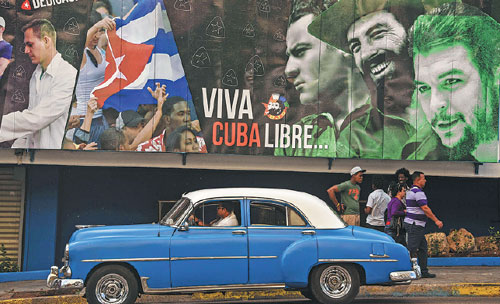From Kennedy to Obama, 50 years of secret talks
Updated: 2016-03-21 08:02
By Agence France-Presse in Washington(China Daily)
|
||||||||
Beyond the public animosity, stark statements and a trade embargo, there is another side to US-Cuba relations: exploratory missions, discreet negotiations and hands extended - in hotel hallways, airport waiting rooms and even the Vatican.
Barack Obama, who arrives in Havana on Sunday (local time) for the first visit by a sitting US president in nearly 90 years, will be the one remembered for opening a new chapter in ties between the United States and Cuba.
But he is not the first to have tried. For more than half a century, others have taken a stab at it, with the same buzzword always in mind: discretion.
While only about 160 kilometers separate the two countries, the idea of rapprochement has been a politically loaded one in America since Fidel Castro came to power in 1959.
Thanks to a number of third countries (Mexico, Spain, Brazil and Canada) and a host of intermediaries (aides, businessmen, journalists and writers, for starters), attempts at bridging the divide, many of them ambitious, have marked the history of bilateral relations.
In late 1962, after the eruption of the Cuban Missile Crisis - which risked escalating into a global nuclear conflict - John F. Kennedy explored the idea of a rapprochement, hoping to capitalize on Castro's fury at Moscow for withdrawing its missiles without even consulting him.
"Kennedy saw an opportunity to try to win Cuba back from the Soviet orbit," explains William LeoGrande, a professor at American University and co-author of the book Back Channel to Cuba: The Hidden History of Negotiations between Washington and Havana.
Kennedy chose a French journalist, Jean Daniel, to convey a message to Castro in 1963.
Daniel, tasked with being the ultimate diplomatic courier, met the Cuban revolutionary leader. He and Kennedy "seemed ready to make peace", he said later.
But on the very day that Daniel met Castro, Nov 22, 1963, Kennedy was assassinated in Dallas. The project fell apart. Kennedy's successor Lyndon Johnson did not wish to pursue the initiative.
Kissinger and Carter
In the mid-1970s, during Gerald Ford's presidency, then secretary of state Henry Kissinger launched in the utmost secrecy what was then the most developed attempt at normalization of relations since they broke off in January 1961.
But the intervention of Cuban forces in Angola in 1975 on behalf of the People's Movement for the Liberation of Angola - which now rules the African nation - sounded the death knell on the effort.
Just a few weeks after taking office in 1977, Jimmy Carter ordered a new round of talks aimed at normalizing ties with Havana.
In the early weeks, things seemed to be moving along - agreements were reached on maritime disputes, commercial fishing and on opening diplomatic interests sections in each country.
"I always had a high opinion of Carter as a man of honor, an ethical man," Castro said years later. "Carter was a man who wanted to fix the problems between the United States and Cuba."
But again, the effort wavered over Cuba's military actions in Africa. Havana refused to budge, and Carter said the time wasn't right to move forward.
Bush and Obama
Fast forward to the turn of the century, and the presidency of George W. Bush for whom only one rule mattered - no concessions without "regime change". So no progress was made.
But in the spring of 2013, as Obama launched into his second term, he authorized the start of exploratory discussions with Havana. The first meeting took place in June that year in Canada.
Pope Francis personally wrote to both leaders - Obama and Fidel Castro's brother Raul, now the president - to urge them to move forward.
In October, US and Cuban delegations found themselves at the Vatican, with officials from the Holy See, to finalize the terms of their normalization of ties.
On Dec 17, 2014, Obama and Castro stunned the world with their announcement that Washington and Havana would resume formal ties.
The nearly unthinkable had happened: top-secret talks had gone on for 18 months without a single leak to the media.
Why so much secrecy? For LeoGrande, there are still powerful reasons to tread carefully on the subject of Cuba - though not the same ones as a generation ago.
"In the 60s and 70s, it was more the issue of the Cold War," he told AFP.
"That's why Johnson decided not to follow up on Kennedy's initiative."
But from the 1980s, the influence - and political clout - of the Cuban-American community in Florida started to weigh heavily on the minds of US political leaders.
"Presidents were afraid - particularly Democratic presidents and Democratic candidates - that if they hinted at an opening to Cuba, they could lose the state of Florida and lose the election," LeoGrande said.
|
A classic car drives past a political poster reading "Long live Free Cuba" in Havana. US President Barack Obama will be the first sitting US president to visit Cuba since 1928. AFP |
(China Daily 03/21/2016 page12)

 Culture Insider: 5 things you may not know about the Spring Equinox
Culture Insider: 5 things you may not know about the Spring Equinox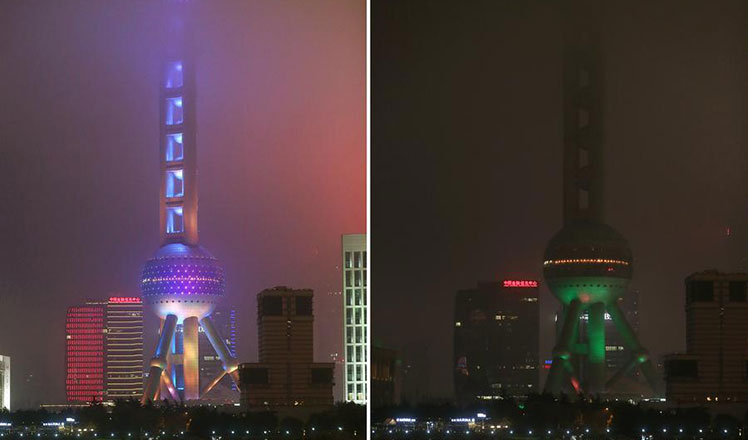
 Landmarks go dark in China for Earth Hour
Landmarks go dark in China for Earth Hour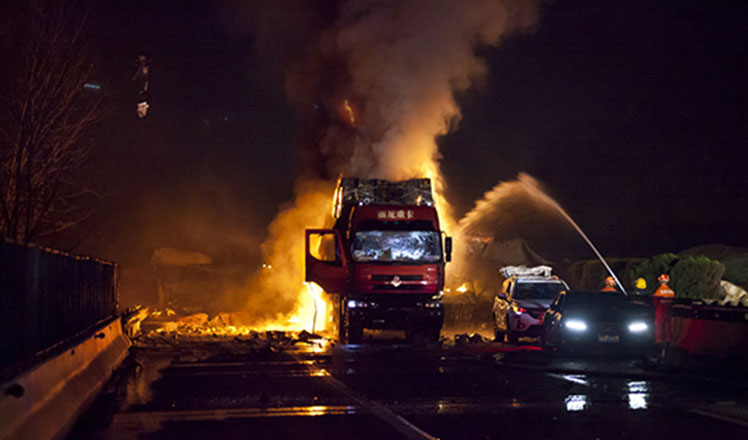
 At least five dead in tanker truck explosion in central China
At least five dead in tanker truck explosion in central China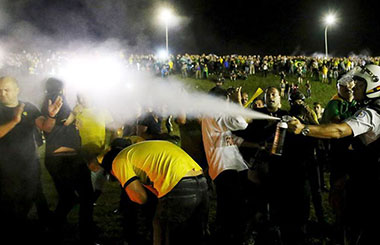
 Brazil's Lula sworn in over protests as Rousseff faces impeachment
Brazil's Lula sworn in over protests as Rousseff faces impeachment
 Smart city: A solution to urban problems?
Smart city: A solution to urban problems?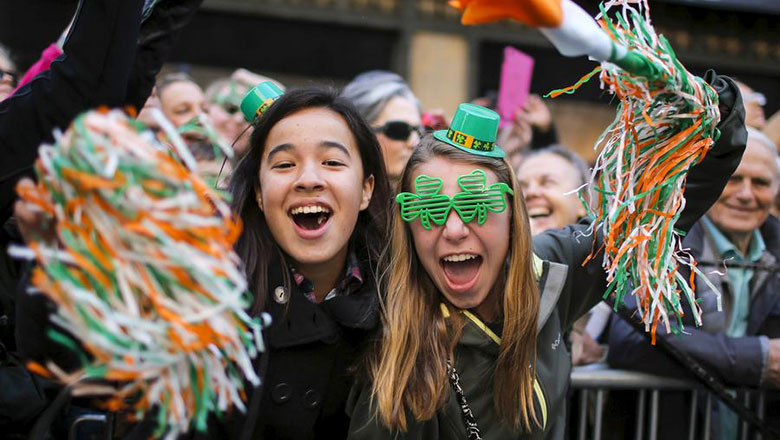
 St. Patrick's Day celebrated around world
St. Patrick's Day celebrated around world
 Top 10 most valuable global brands
Top 10 most valuable global brands
 These university canteen dishes will blow your mind
These university canteen dishes will blow your mind
Most Viewed
Editor's Picks

|

|

|

|

|

|
Today's Top News
Marriott unlikely to top Anbang offer for Starwood: Observers
Chinese biopharma debuts on Nasdaq
What ends Jeb Bush's White House hopes
Investigation for Nicolas's campaign
Will US-ASEAN meeting be good for region?
Accentuate the positive in Sino-US relations
Dangerous games on peninsula will have no winner
National Art Museum showing 400 puppets in new exhibition
US Weekly

|

|
